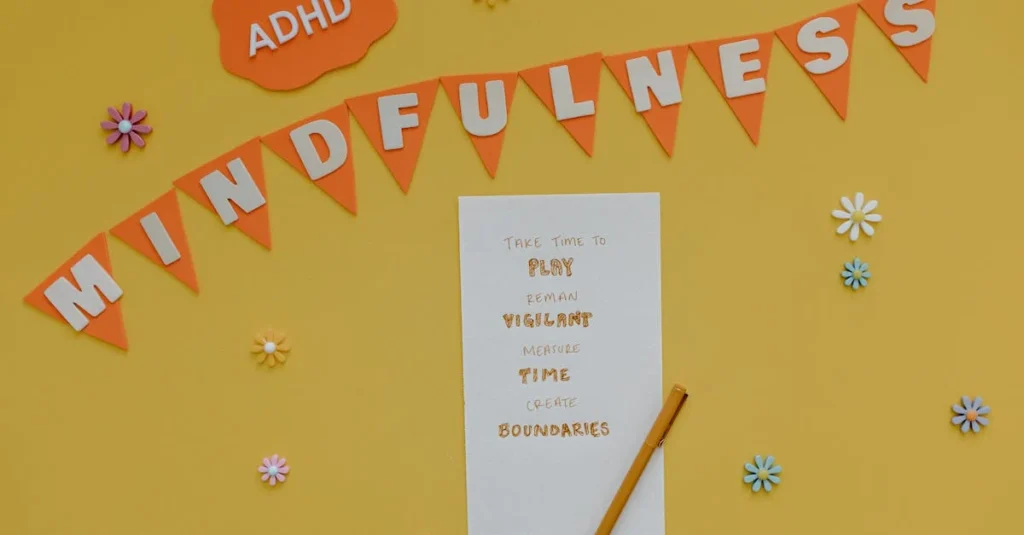In today’s fast-paced world, stress and anxiety can easily take a toll on mental well-being. Group mindfulness exercises offer a refreshing antidote, creating a shared space for individuals to connect, reflect, and rejuvenate. These activities not only promote personal growth but also foster a sense of community, making them an ideal choice for workplaces, schools, and wellness retreats.
Participating in group mindfulness exercises helps individuals cultivate awareness and presence, allowing them to navigate life’s challenges with greater ease. By engaging in these practices together, participants experience the power of collective energy, enhancing their mindfulness journey while building supportive relationships. Whether it’s guided meditations, mindful movement, or breathing techniques, group exercises provide a valuable opportunity for growth and healing.
Group Mindfulness Exercises
Group mindfulness exercises consist of activities designed to enhance awareness, reduce stress, and foster community among participants. These exercises encourage individuals to focus on the present moment collectively, cultivating a shared mindfulness experience.
Types of Group Mindfulness Exercises
- Guided Meditations: In these sessions, a facilitator leads participants through meditation techniques, offering prompts and support for a deeper experience.
- Breathing Techniques: Practicing breath control together helps participants ground their emotions and maintain focus, strengthening their connection to the group.
- Mindful Movement: Activities like yoga or tai chi encourage participants to move intentionally, combining physical exercise with mindfulness for holistic benefits.
- Group Discussions: Sharing experiences in a safe environment promotes self-reflection and strengthens social bonds, enhancing feelings of belonging and understanding.
- Stress Reduction: Engaging in mindfulness as a group leads to lower stress levels, as shared experiences foster a sense of support.
- Increased Awareness: Participants develop better awareness of their thoughts and emotions, aiding in personal growth and development.
- Improved Relationships: Building connections with others during these exercises promotes empathy and trust, enriching interpersonal relationships.
- Enhanced Community: A shared commitment to mindfulness creates a supportive community, bolstering unity among individuals.
Group mindfulness exercises provide important tools for navigating the complexities of modern life, fostering both individual and collective well-being. Through various activities, participants cultivate awareness and resilience in a shared environment, deepening their connections with themselves and others.
Benefits of Group Mindfulness Exercises
Group mindfulness exercises provide significant benefits, particularly in enhancing mental health and strengthening social connections.
Improved Mental Health
Improved mental health results from regular participation in group mindfulness exercises. Evidence shows that engaging in these practices reduces stress levels by up to 30% and alleviates symptoms of anxiety and depression. Participants report increased emotional regulation and resilience, which contribute to overall psychological well-being. Mindfulness fosters an enhanced awareness of thoughts and emotions, allowing individuals to approach challenges with greater clarity. Techniques such as guided meditations and mindful breathing promote relaxation and focus, helping individuals develop healthier coping strategies during difficult times.
Enhanced Social Connections
Enhanced social connections occur through shared mindfulness exercises. Participants often experience a sense of belonging, which can reduce feelings of loneliness. Engaging in group activities, such as mindful movement or group discussions, fosters trust and empathy among members. Studies show that social support derived from these relationships significantly boosts emotional health. This supportive environment allows individuals to express themselves openly, nurturing stronger bonds. Ultimately, group mindfulness exercises cultivate a sense of community that enhances both individual and collective well-being.
Types of Group Mindfulness Exercises
Various group mindfulness exercises enhance awareness while fostering community connections. The following categories illustrate effective practices that promote mental well-being.
Guided Meditations
Guided meditations involve a trained facilitator leading participants through visualization and mindfulness techniques. These sessions generally last from 15 to 60 minutes, allowing participants to focus on their breath and thoughts, fostering a deeper connection to the present moment. In group settings, shared experiences during guided meditations promote discussion and reflection, enhancing emotional awareness and understanding among participants. Studies indicate that engaging in guided meditations can reduce stress levels by 30%, making it a powerful tool for emotional regulation.
Mindful Movement Activities
Mindful movement activities encourage participants to engage their bodies in a deliberate, present manner. Common practices include yoga, tai chi, and qigong. Each session emphasizes breath control, slow movements, and body awareness. These activities typically last from 30 to 90 minutes, promoting physical and mental relaxation. Participants report increased flexibility and strength, alongside heightened mindfulness and well-being. Furthermore, group participation in mindful movement cultivates bonds among individuals, enhancing feelings of trust and support within the community.
Implementing Group Mindfulness Exercises
Implementing group mindfulness exercises requires careful planning and a nurturing environment. Creating the right atmosphere enhances participants’ experiences and ensures effective practice.
Setting Up the Environment
Selecting a quiet, comfortable space is crucial for group mindfulness exercises. Factors to consider include:
- Lighting: Use soft, natural light or adjustable dimming to encourage relaxation.
- Seating Arrangement: Arrange chairs or cushions in a circle to promote inclusivity and connection.
- Noise Control: Reduce distractions by minimizing external noise and interruptions.
- Temperature: Ensure the environment is comfortably warm or cool to accommodate all participants.
Incorporating calming elements like soothing music, essential oils, or nature sounds can enhance relaxation and focus during sessions.
Facilitating a Successful Session
Effective facilitation is key to successful group mindfulness exercises. Essential strategies include:
- Establishing Ground Rules: Set clear expectations for participation, confidentiality, and respect among members.
- Leading with Confidence: Use a calm, steady voice to guide participants through exercises, ensuring clarity and support.
- Encouraging Engagement: Foster an inviting atmosphere, prompting participants to share experiences and insights without pressure.
- Adapting Practices: Tailor exercises to participants’ needs and preferences, such as offering options for different meditation techniques or movement levels.
Regular feedback encourages continuous improvement. Collecting participant input ensures sessions remain relevant and beneficial for everyone involved.
Fostering a Sense Of Community
Group mindfulness exercises offer a powerful way to combat stress and anxiety while fostering a sense of community. By engaging in these practices, individuals not only enhance their personal well-being but also build meaningful connections with others. The shared experience of mindfulness cultivates empathy and trust, creating a supportive environment that nurtures growth.
As participants explore various techniques together, they develop greater awareness and emotional resilience. This collective journey toward mindfulness not only improves mental health but also strengthens social bonds. Embracing group mindfulness can lead to lasting benefits that enrich both individual lives and the community as a whole.



